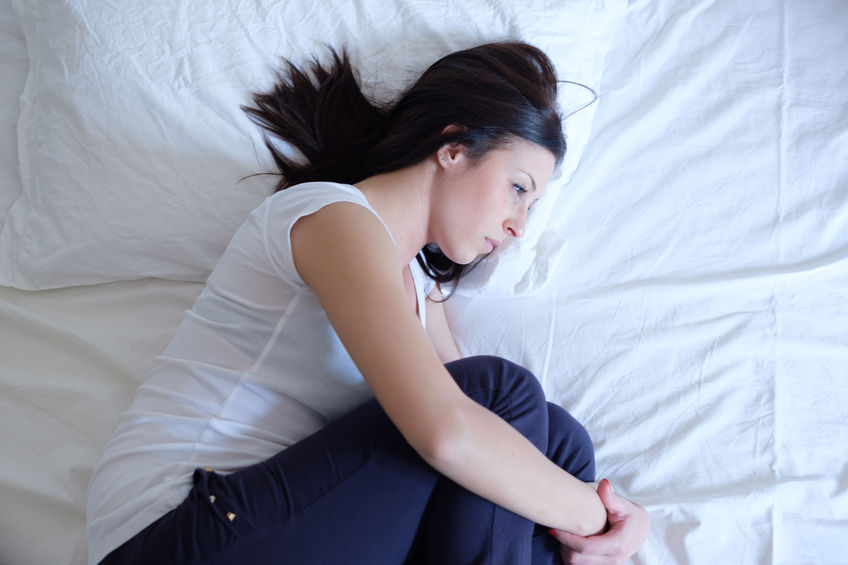Sleep
Sleep is a necessity of life. Sleep provides the mind and body with time to repair itself and re-fuel. If we are well-rested, we are better able to deal with the day-to-day occurrences of life.
For many people who live with headache disorders, getting a good night’s sleep is a frustrating challenge. Many who experience headache problems struggle with difficulty falling asleep, frequent awakenings, and/or not feeling well-rested on awakening.
Poor sleep quality can have a negative impact on one’s daily activities. Some people may have difficulty concentrating or remembering things, decreased alertness during activities, diminished energy levels, disturbed mood, decreased productivity and a strain on relationships with others. In addition, poor sleep quality can affect your health. Over the long-term, poor sleep quality can contribute to health problems that affect the immune, nervous and digestive systems to name a few. In addition, compromised sleep quality can impact on your headache experience.
The relationship between sleep and headache is often unclear, but we do know that sleep disturbance and headache often occur together. Disturbed sleep may contribute to triggering an attack or the headache itself may disrupt sleep. Furthermore, headache and sleep are both produced by physiological events in the nervous system.
- Insomnia affects up to one-third of the population.
- This module will largely focus on Behavioral Change.
- Medications
- Psychological Treatment
- Behavioural Changes
MEDICATIONS
Sleeping pillsare medications that are used to help you sleep -sedative hypnotics. These drugs help you to feel less anxious and make you drowsy to promote sleep. These kinds of medications are designed for short-term use ,i.e., less than 2 consecutive weeks.
There are concerns with their use over the longer term, mainly with respect to side effects, potential interactions with other medications and the development of toleranceto the drug. When you develop tolerance to a medication, it means that it may not work as well for you over time.
If you are currently taking sleeping pills, and are concerned about their use, you should first discuss this with your family doctor. They can provide you with good information and guidance specific to your individual needs.
Research indicates that over the long-term, self-management approaches ,Behavioral Change approaches are more effective than medications for managing sleeping problems.
Some example of Sedative Hypnotic Drugs:
- benzodiazepines :Includes Restoril and Dalmane
- benzodiazepine-like : Imovane
It is important that you understand that some medications prescribed and taken daily to prevent headache attacks, prophylaxis are notsleeping pills.
For example, amitriptyline is a tricyclyic anti-depressant medication that is often taken at night and can help with sleep, but it isnot asleeping pill, sedative hypnotic.
PSYCHOLOGICAL TREATMENT
This method of treatment of disordered sleepinvolves working with a Chartered Psychologist in your area. Psychologists are experts in the connection between the mind and body.
They can help you to become aware of and work through, and modify thoughts, feelings and behaviors that may be contributing to your headache pain and/or disturbed sleep.
You can see a psychologist through your local hospital if available or privately. Some health benefit plans provide coverage to see a psychologist.
Working with a psychologist may involve, but is not limited to, the following:
- individual and family counseling sessions to help identify and work through difficult or stressful issues in one’s life
- instruction in a variety of relaxation techniques that can be a very effective stress management strategies
- introduction to biofeedback techniques that can help you to regulate your body’s responses
- to stressful situations (commonly through skin temperature and muscle tension measurements)
- guiding you through hypnosis and/or teach you how to hypnotize yourself
Ask your family doctor or other health care provider for information on psychologists practicing in your area. You can also get useful information about psychologists in your province from the following website link:www.cpa.ca/provs.html
BEHAVIORAL CHANGE
There are several ways that you can modify your habits and routines around sleep that may help to improve the quality of your sleep, and in turn, make you less headache prone. Each box below highlights some practical strategies.
Sleep Hygiene
HABITS & ROUTINES
- keep your daytime routines consistent
- set a consistent bedtime and wake time 7 days per week ,avoid sleeping in
- take a warm bath before you go to bed to raise your body temperature
- if you nap, do so for less than 30 minutes and at about the same time daily
NUTRITION
- eat regular meals throughout the day
- eat heavy meals 3-4 hours before bedtime
- minimize fluid intake close to bedtime
- try a small carbohydrate-rich bedtime snack
- avoid alcohol before bed
- avoid caffeinated beverages after 2pm ,i.e., tea, coffee, cola
EXERCISE
- make regular exercise part of your healthy lifestyle
- strenuous exercise should be done a minimum of 3 hours prior to bedtime
- try gentle exercise like walking, stretching and yoga in the evening
SLEEP ENVIRONMENT
- ensure that your mattress, pillow and bedclothes are comfortable
- give pets their own bed
- keep your bedroom quiet and dark
- eliminate and minimize possible disruptions
- maintain a comfortable sleeping temperature ,16-18 degrees
OTHER
- avoid watching your clock-it creates anxiety and contributes to thoughts that can keep you awake ,cover your clock or turn it around
- have a notepad at your bedside to record thoughts and worries
- avoid mentally stimulating activities just before you go to bed
- try to quit smoking or do not smoke after 7pm,smokers are light sleepers
Stimulus Control
Stimulus control involves breaking the negative association between your bed and sleeplessness. The objective is to begin to mentally and physically associate your bed with restful sleep. This can take several weeks to achieve
The following are some stimulus control strategies:
- the bedroom is a place for sleep and sex only
- avoid things like watching TV, eating, doing work and discussing problems in bed
- go to bed when you feel sleepy, you may have to adjust your bedtime
- if you are unable to fall asleep after about 30 minutes, leave your bedroom and go to a quiet dimly lit area; do a non-stimulating activity until you start to feel sleepy ,i.e., a puzzle, read a boring book, etc. return to bed; repeat as often as necessary through the night
Relaxation
Sometimes we ask our body and mind to gear down for sleep, but we do not provide our mind and body with preparation time to do this. Life is busy, and we may be rushing about until bed time. When our heads hits the pillow, we expect it to switch gears. Very often, sleep may not happen this easily and according to our expectations. It seems that the harder you try to fall asleep, the less likely you are to fall asleep.
One way you can provide your mind and body with this sleep preparatory time is to incorporate some 15-30 minutes of relaxation practice into your bedtime routine. Some helpful relaxation techniques may include deep breathing, progressive muscle relaxation ,PMR, or visualization. You can learn these techniques from a therapist or instructor, purchase self-instructional books or tapes, or in a class in your community, if available.
Working toward a state of relaxation for the mind and body will help to alleviate muscle tension, clear your mind and slow you down.Ñall of which can lull you into a deep and restful sleep.
Changing Thinking
This sleep promotion strategy involves identifying thoughts that may be contributing to your poor sleep qualityand changing them to more positive, helpful thoughts. Many people describe difficulty with racing thoughts that can get away from you while you are trying to fall asleep. For example,I am never going to fall asleep have been laying here for over an hour have so much to do tomorrow and I will be so tired-I must not forget I have a dentist appointment at 3pm hope I do not get stuck in that construction on Main Street on my way thereÉetc. These kinds of racing thoughts and worries can keep your mind alert and hence awake and may also make you feel anxious and tense.
Some strategies that you my find helpful include:
- develop awareness of your self-talk ,what you say to yourself when you are trying to fall asleepÑa journal in which you can record these thoughts may be a helpful tool
- try to catch your worrisome, racing thoughts and redirect yourself to think about something that will help you relax or practice a relaxation technique
- distract your mind from worrisome thoughts-try to picture a stop sign in your mindÑas you picture this image, it puts a stop to your racing thoughts
- remember that your thoughts can bring about emotional reactions-try to focus on what is positive, rather than what is not
Tags In
Categories
THE MIGRAINE TREE
- BRANCHES
- ACUTE TREATMENTS
- DEVICES AND NEUROMULATIOIN
- PREVENTIVE TREATMENTS
- PROCEDURES AND INJECTIONS
- SELF-CARE AND LIFESTYLE
- SOCIAL LIFE
- TRUNK
- ROOTS
OTHER CATEGORIES




